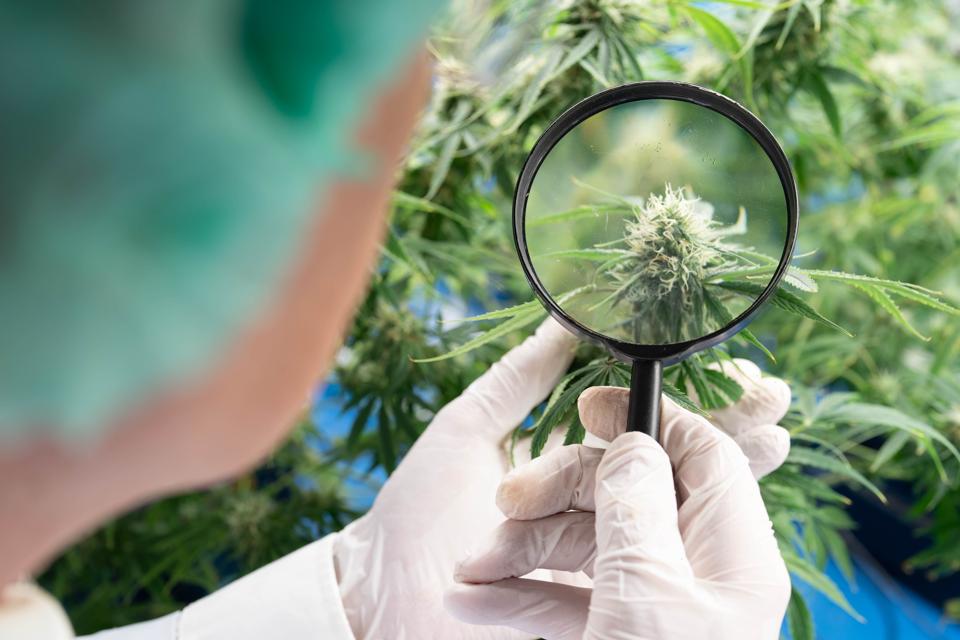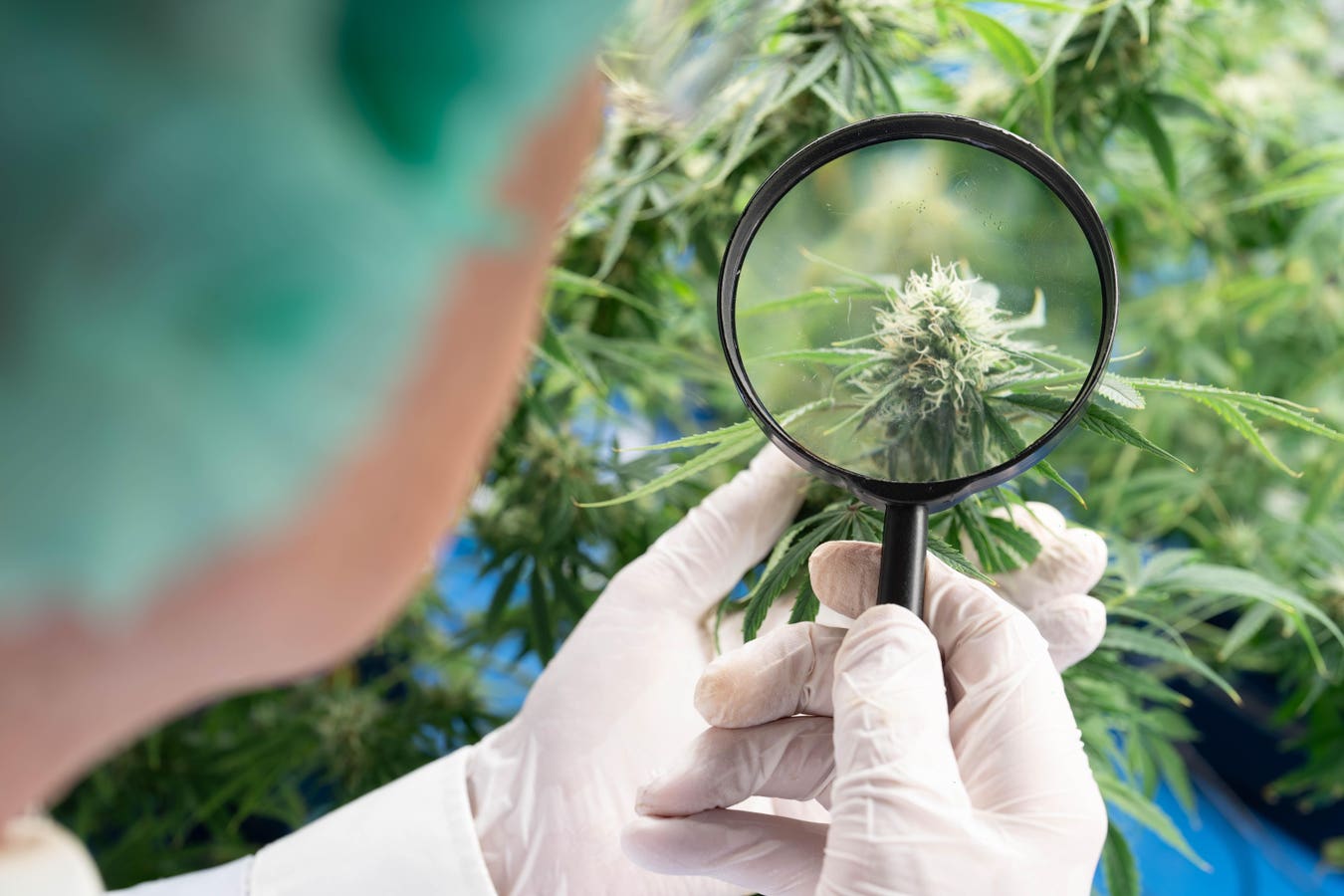
Scientist researcher using manifier glass closely monitor record of growing up development of cannabish flower and leaves under environment lighting control inhouse modern plantation
getty
A massive genetic study has found key genes linked to cannabis use, in an effort to explain why some people are more likely to try or frequently use cannabis, and how this behavior overlaps with mental health and addiction risk.
Researchers analyzed genetic data from more than 131,000 participants of the personal genetics company 23andMe to examine two traits: whether a person had ever used cannabis in their lifetime and how frequently they used it during their heaviest period.
The findings, published in Molecular Psychiatry this week, revealed two genes tied to lifetime use and to frequency, pointing to biological pathways involved in brain signaling, risk-taking, and addiction.
As cannabis is used by 200 million people worldwide, according to the United Nations, and several countries are easing restrictions on its use through legalization or decriminalization, scientists are digging into why some users develop problems while others don’t. In this context, this new genetic study suggests that certain inherited traits may help explain who tries cannabis, and who’s more likely to develop cannabis use disorder.
The team of researchers from several Canadian and U.S. academic institutions has found that both lifetime and frequent cannabis use are heritable traits, which means that genetics could help understand who uses cannabis and how often. The analysis confirmed strong genetic links between cannabis use and other forms of substance use, including alcohol and tobacco, as well as psychiatric disorders such as depression and ADHD.
The researchers discovered that lifetime cannabis use is linked to two important genes. The first, Cell Adhesion Molecule 2 (CADM2), helps brain cells connect and communicate, and has been repeatedly tied to traits like risk-taking, impulsivity, and substance use, suggesting it may influence how people respond to rewards and risks. The second is the Metabotropic Glutamate Receptor 3 (GRM3) gene, which regulates communication between brain cells through the chemical glutamate and supports learning and memory. GRM3 has also been linked to psychiatric disorders such as schizophrenia and bipolar disorder, which may link cannabis use and mental health.
Sandra Sanchez-Roige, Ph.D., associate professor of psychiatry at UC San Diego School of Medicine and senior author of the study, said in a statement that “understanding the genetics of early-stage behaviors may help clarify who is at greater risk, opening the door to prevention and intervention strategies.”
Mapping The Genetic Risks Of Cannabis Use
The researchers also used polygenic scores, which are numerical estimates of genetic risk, in order to see if the results could predict real-world cannabis use in other groups. In participants from the All of Us national health program, those with higher polygenic scores for lifetime cannabis use were significantly more likely to report daily or problematic cannabis use.
People who had a higher genetic tendency to use cannabis were also more likely to experience mood and anxiety disorders, the study found. Their genes were also linked to a higher risk of certain infectious diseases like HIV and hepatitis C. However, the same genetic pattern was less common in people with celiac disease, an autoimmune condition.
“By studying these early, intermediate traits, we can start to map how genetic risk unfolds long before cannabis use disorder develops,” said Hayley Thorpe, Ph.D., a visiting scholar in Sanchez-Roige’s lab and postdoctoral researcher at Western University, in a statement.
The researchers, however, acknowledge the limitations of their study, highlighting that it relied on self-reported data, which can be influenced by recall errors or differences in how people interpret questions about cannabis use. Furthermore, most participants were middle-aged adults of European ancestry, meaning the results may not apply to younger populations or other ethnic groups.

